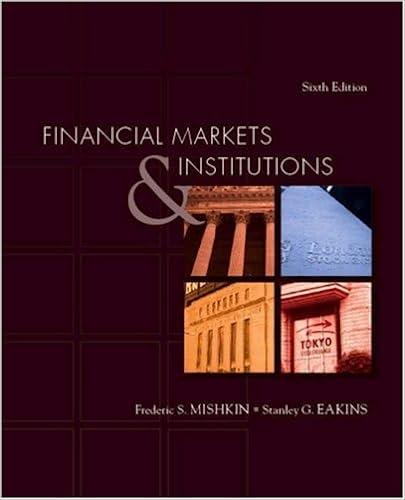






There are three securities in the market. The following chart shows their possible payoffs: State Probability of Return on Return on Return on Security 1 Security 2 Security 3 Outcome .16 .191 .041 34 .141 .091 .091 34 .091 .141 .16 041 .041 .191 1 2 3 4. .191 .141 a-1. What is the expected return of each security? (Do not round intermediate calculations and enter your answers as a percent rounded to 2 decimal places, e.g., 32.16.) Security 1 Security 2 Security 3 % a-2. What is the standard deviation of each security? (Do not round intermediate calculations and enter your answers as a percent rounded to 2 decimal places, e.g., 32.16.) Security 1 Security 2 Security 3 % % b-1. What are the covariances between the pairs of securities? (A negative answer should be indicated by a minus sign. Do not round intermediate calculations and round your answers to 5 decimal places, e.g., 32.16162.) Security 1 & 2 Security 1 & 3 Security 2 & 3 b-2. What are the correlations between the pairs of securities? (A negative answer should be indicated by a minus sign. Do not round intermediate calculations and round your answers to 4 decimal places, e.g., 32.1616.) Security 1 & 2 Security 1 & 3 Security 2 & 3 c-1. What is the expected return of a portfolio with half of its funds invested in Security 1 and half in Security 2? (Do not round intermediate calculations and enter your answer as a percent rounded to 2 decimal places, e.g., 32.16.) Security 1 & 2 % c-2. What is the standard deviation of a portfolio with half of its funds invested in Security 1 and half in Security 2? (Do not round intermediate calculations and enter your answer as a percent rounded to 2 decimal places, e.g., 32.16.) Security 1 & 2 % d-1. What is the expected return of a portfolio with half of its funds invested in Security 1 and half in Security 3? (Do not round intermediate calculations and enter your answer as a percent rounded to 2 decimal places, e.g., 32.16.) Security 1 & 3 % d-2. What is the standard deviation of a portfolio with half of its funds invested in Security 1 and half in Security 32 (Leave no cells blank - be certain to enter "0" wherever required.) Security 1 & 3 e-1. What is the expected return of a portfolio with half of its funds invested in Security 2 and half in Security 3? (Do not round intermediate calculations and enter your answer as a percent rounded to 2 decimal places, e.g., 32.16.) Security 2 & 3 % e-2. What is the standard deviation of a portfolio with half of its funds invested in Security 2 and half in Security 3? (Do not round intermediate calculations and enter your answer as a percent rounded to 2 decimal places, e.g., 32.16.) Security 2 & 3 There are three securities in the market. The following chart shows their possible payoffs: State Probability of Return on Return on Return on Security 1 Security 2 Security 3 Outcome .16 .191 .041 34 .141 .091 .091 34 .091 .141 .16 041 .041 .191 1 2 3 4. .191 .141 a-1. What is the expected return of each security? (Do not round intermediate calculations and enter your answers as a percent rounded to 2 decimal places, e.g., 32.16.) Security 1 Security 2 Security 3 % a-2. What is the standard deviation of each security? (Do not round intermediate calculations and enter your answers as a percent rounded to 2 decimal places, e.g., 32.16.) Security 1 Security 2 Security 3 % % b-1. What are the covariances between the pairs of securities? (A negative answer should be indicated by a minus sign. Do not round intermediate calculations and round your answers to 5 decimal places, e.g., 32.16162.) Security 1 & 2 Security 1 & 3 Security 2 & 3 b-2. What are the correlations between the pairs of securities? (A negative answer should be indicated by a minus sign. Do not round intermediate calculations and round your answers to 4 decimal places, e.g., 32.1616.) Security 1 & 2 Security 1 & 3 Security 2 & 3 c-1. What is the expected return of a portfolio with half of its funds invested in Security 1 and half in Security 2? (Do not round intermediate calculations and enter your answer as a percent rounded to 2 decimal places, e.g., 32.16.) Security 1 & 2 % c-2. What is the standard deviation of a portfolio with half of its funds invested in Security 1 and half in Security 2? (Do not round intermediate calculations and enter your answer as a percent rounded to 2 decimal places, e.g., 32.16.) Security 1 & 2 % d-1. What is the expected return of a portfolio with half of its funds invested in Security 1 and half in Security 3? (Do not round intermediate calculations and enter your answer as a percent rounded to 2 decimal places, e.g., 32.16.) Security 1 & 3 % d-2. What is the standard deviation of a portfolio with half of its funds invested in Security 1 and half in Security 32 (Leave no cells blank - be certain to enter "0" wherever required.) Security 1 & 3 e-1. What is the expected return of a portfolio with half of its funds invested in Security 2 and half in Security 3? (Do not round intermediate calculations and enter your answer as a percent rounded to 2 decimal places, e.g., 32.16.) Security 2 & 3 % e-2. What is the standard deviation of a portfolio with half of its funds invested in Security 2 and half in Security 3? (Do not round intermediate calculations and enter your answer as a percent rounded to 2 decimal places, e.g., 32.16.) Security 2 & 3













